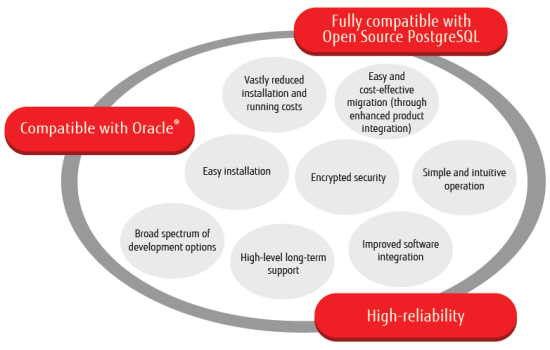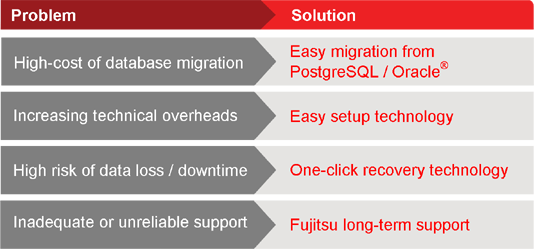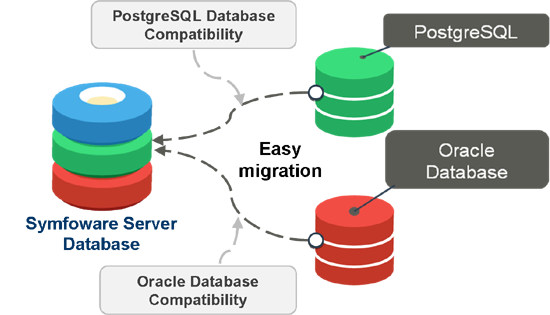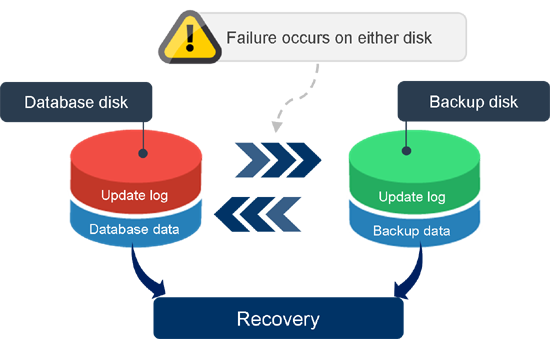- Products
- Features
- Technology
- Resources
- Home >
- Products >
- Software >
- Middleware >
- Symfoware >
- Features
Symfoware Server Features and Benefits

Symfoware Server V12 Features and Benefits
Features
- Easy installation
- Easy setup
- Easy recovery
- Simplified migration
- PostgreSQL fully compatible
- Oracle compatible SQL layer
- Support for Oracle packages and functions
- Standby clustering
- Secure data encryption
- Web-based and command line interfaces
- Application development support
- Guaranteed 5 years standard support from end of sales period (extendable)
Benefits
- Simplified setup and recovery
- Seamless integration into pre-existing systems
- Reduced staff overheads
- Cost-effective migration process
- Increased flexibility and scalability
- Increased transaction throughput
- Simplified queries
- Better scheduling ability
- Provision for ultra fine-grained query statistics for use with monitoring tools
- Proven product quality
- Guaranteed on-going support options
Symfoware Server V12 provides effective solutions to common business challenges.

Easy Migration
Symfoware Server V12 has been designed to be fully compatible with Open Source PostgreSQL databases, and also offers enhanced compatibility when migrating from existing Oracle® systems.
Previously, migration has proved problematic due to high workload and expenditure. This problem is resolved by significantly reducing migration time so that budget restraints and business disruption are no longer a major concern.
The use of PostgreSQL technology enables integration with a wide range of software bundles, information utilization systems, development tools, and application runtime environments. This means that there is no need for additional investment in new software systems. User disruption is also avoided due to the ability to retain familiar software products.
- 80% cost reduction when compared to Oracle
- 90% compatibility attained when evaluated by the Fujitsu Migration Support Center
- Migration Tool Set: Assessment tool / Migration tool / Migration Guide & Case Study

Reduced Setup Costs
Symfoware Server V12 employs a minimal setup process based on optimized resource deployment. The setup process performs dynamic hardware resource detection during installation and the software is automatically tuned with the customer’s server configuration. This simplified installation and setup process allows the system to be implemented within a very efficient time frame, allowing for significant savings in technical labor costs.

Maintaining Data Integrity
If a database problem occurs or if data is accidentally deleted, recovery can be performed with a single click, so there is almost no need for technical user intervention. Media recovery can be executed using GUI or server commands.

Enterprise-class Support
The Symfoware Server Development Division works in unison with the Support Division to provide a permanently aligned best-of-breed support service. Long-term standard support is provided for a period of five years, starting from the end of the sales phase for the product release. In addition, an extended support option is also available to customers for ongoing assurance, so that future support and system confidence is a guaranteed business outcome.

Share this page |
|
|
|
|
|


















